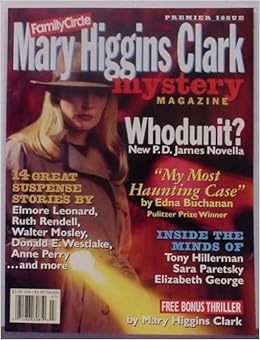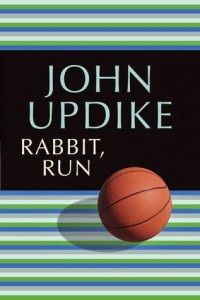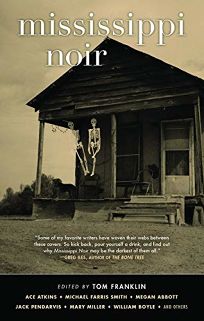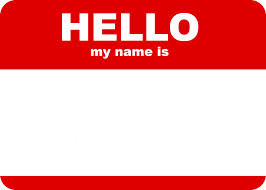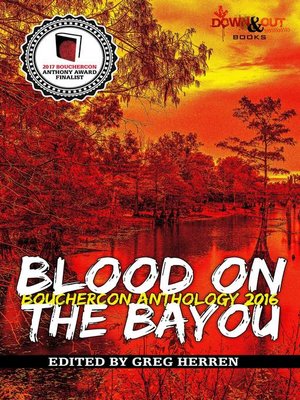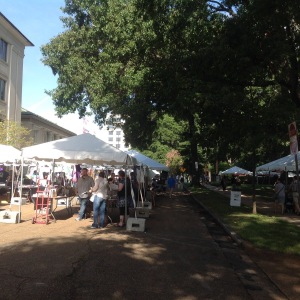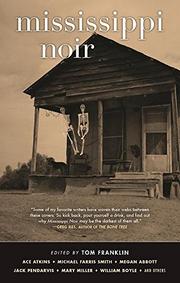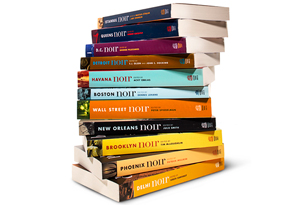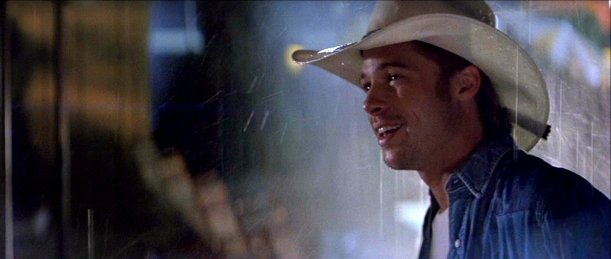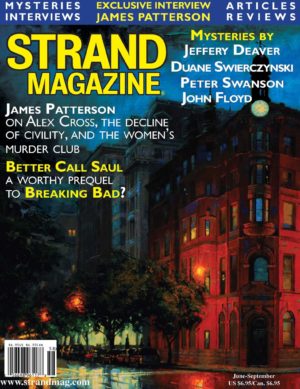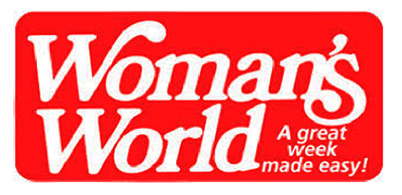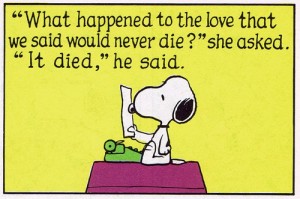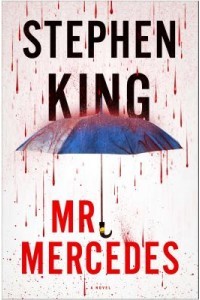Like most of you who read this blog, I like mysteries. Mysteries of any kind--shorts, novellas, novels, plays, movies. And one good thing for those of us who write and read mystery short stories is that there are a number of magazines that specialize in that genre: AHMM, EQMM, Strand Magazine, Sherlock Holmes Mystery Magazine, Mystery Weekly, Flash Bang Mysteries, Over My Dead Body, Crimespree, Mysterical-E, and so on. I submit stories to these publications on a regular basis, and sometimes, when the stars line up just right, I get stories published there. FYI, one of the best lists of these short-mystery markets can be found at my friend Sandra Seamans's website, My Little Corner.
Genrecial profiling
Here's the rest of the story. As you know from the other columns at this blog over the past several days, mystery publications are not the only markets for our shorts. There are a number of general-interest magazines, sometimes even the literary journals, that occasionally publish mystery stories. (On the other side of the coin, there'll always be those who consider mysteries and other genre stories inferior, but that's another matter.)
The saving grace here is that, thankfully, not everyone thinks mysteries are limited to whodunits. Elmore Leonard, who won the Edgar Award and was recognized as a Grand Master by Mystery Writers of America, once pointed out that he had never in his life written a story or novel in which the identity of the villain remained unknown until the end. He wrote crime/suspense fiction, not traditional mysteries.
Otto Penzler's definition, clearly stated in the introduction of each edition of his annual Best American Mystery Stories anthology, is that a mystery is any story in which a crime, or even the threat of a crime, is central to the theme or the plot. If you write a story that fulfills that requirement, you've written a mystery. This rather broad definition can apply to a lot of unlikely stories. One can write a romance, a science fiction tale, a Western, a horror story, even a literary piece, and if a crime plays a major role in the story, it can--theoretically at least--also be categorized as mystery fiction.
Crashing the party
What are some of these "other" markets? I'll let real life be an example: most of my mystery stories are and have been published in the mystery magazines listed above--but my mysteries have also appeared in the following NON-mystery publications, some of which are still around (Google their sites for more info):
Thema
Spinetingler Magazine
Prairie Times
Western Digest
Amazon Shorts
Grit
Champagne Shivers
Ancient Paths
Star Magazine
The Big Adios
Thirteen Magazine
Short Stuff for Grownups
Writers' Post Journal
The Atlantean Press Review
Eureka Literary Magazine
The Copperfield Review
Yellow Sticky Notes
Scifantastic
Sniplits
Woman's World
Desert Voices
Phoebe
Writers on the River
Dogwood Tales Magazine
Ethereal Gazette
Cenotaph
Scavenger's Newsletter
The Oak
Dream International Quarterly
Kings River Life
Star*Line
Apollo's Lyre
Medicinal Purposes
Pebbles
The Villager
Short Tales
Futures
Seeds
Green's Magazine
 The Saturday Evening Post
The Saturday Evening PostRoswell Literary Review
Flashshot
Untreed Reads
Taj Mahal Review
Just a Moment
Reader's Break
Writer's Block Magazine
Illya's Honey
T-Zero
The Mid-South Review
Pages of Stories
Ficta Fabula
Spring Fantasy
Lines in the Sand
Mindprints
Anterior Fiction Quarterly
Mythic Delirium
Flash Tales
Lost Worlds
Simulacrum
Listen Magazine
Penny Dreadful
Hadrosaur Tales
Pegasus Review
Outer Darkness
Matilda Ziegler Magazine for the Blind
Some of these are paying markets and some pay only in copies--and I've had multiple stories published in most of them (19 at Amazon Shorts, 4 in Dogwood Tales, 4 in Flashshot, 7 in Reader's Break, 5 at The Saturday Evening Post, etc.).
I also have a mystery story ("Flu Season") in the November 4th issue of The Norwegian American, another ("Survival") in the November 26 issue of Kings River Life, and a third mystery ("A Green Thumb") coming in January in Seeds, edited by my old buddy Michael Bracken. Again, in keeping with the theme here, none of these three publications deals exclusively with mystery shorts.
NOTE 1: My reference to The Saturday Evening Post is its print edition, which is published every two months. That's where my five stories for them have appeared--and three of those five fit the criteria for mysteries. BUT . . . the SEP also has an online version that I'm told specializes in mystery fiction. I've not verified that and I've never submitted to the online edition, but it might be worth checking out.
NOTE 2: I didn't mention anthologies. I've sold a lot of stories to both mystery and non-mystery anthos. Sandra's My Little Corner website also lists anthology "calls for submissions," and so does Ralan.com. As you probably know, anthologies--like magazines--are among the markets that are examined to determine Edgar nominees, Best American Mystery Stories candidates, etc.
Chick fic
Several references have been made this past week to Woman's World, which of course is not a mystery magazine (WWMM?) but which has always included one romance and one mystery in each weekly issue. These mysteries are a little different in format from most that I write: for one thing, they're very short--700 words max--and for the past dozen years or so, they've been "interactive," which means the solution to the mystery is provided separately at the end of the story so the reader has a chance to solve it herself/himself.
WW specifics
For anyone who's interested, Woman's World pays $500 for mystery stories, and the fiction editor is Patricia Gaddis. Longtime editor Johnene Granger retired at the beginning of this year. FYI, the email address to use for submissions is FictionPro@WomansWorldMag.com if you've had a contract with WW in the past; if you've not had a contract with WW before, the submissions email is Fiction@WomansWorldMag.com. For problems only, you can contact Patricia at her personal email address, Prose@dnet.net.
More guideline info: Put "mystery submission" in the subject line of your email, and attach your story as a Word document, double-spaced, 12-point font. You should receive an auto-reply confirmation that your story's been received, but you won't get any further responses unless your story is accepted. If you've heard nothing back in four months, assume it was rejected. You should submit holiday-themed stories two to three months early, and snailmailed submissions will still go through if you don't have access to email--but again, be aware that you'll only get a response if your story is accepted. (Most of the above info is paraphrased from WW's "unofficial guidelines for 2016," which are the only guidelines I've seen.)
If you decide to send them a mystery, remember that 700 words is the absolute limit, and be sure to include the "solution" in that wordcount. Stay away from too much sex and violence (at least in your story) and also avoid politics, religion, or anything controversial. And whatever you do, don't put a pet in jeopardy. Seriously.
Final thoughts
Another option for getting your short stories published is of course to ignore the traditional venues altogether and--although I've not personally waded into those waters--self-publish them via Amazon and elsewhere. Steve Liskow, our latest employee at the SleuthSayers asylum, posted an extremely helpful column recently, on the subject of self-publishing--here's a link.
In summary, you can sell mystery stories to mystery magazines, non-mystery stories to non-mystery magazines, or (as in my long list above) mystery stories to non-mystery magazines. The only thing I've not yet done is sell a non-mystery story to a mystery magazine. So the only formula that doesn't work is NMS = MM.
Main thing is, don't let your completed mystery manuscripts sit there in a drawer, as I once did. If they're good enough, they'll find a home and a readership. And if you do choose to submit them to traditional markets, remember that there are also places other than the big mystery mags that might take them.
Go ye, and procrastinate no more.
